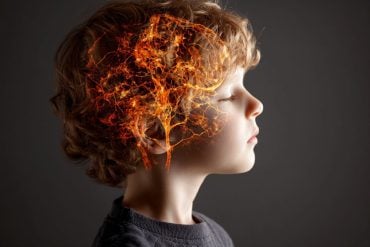Summary: Researchers reveal anger isn’t just a negative emotion; it can be a potent driver for goal achievement. They explain that while happiness is often viewed as the ideal state, a blend of emotions, including anger, often yields the best results.
The functionalist theory of emotion suggests every emotion signals necessary actions based on events. In a series of experiments and survey analyses, anger consistently improved goal attainment, especially in challenging scenarios.
Key Facts:
- Experiments involving over 1,000 participants showed anger improved the ability to reach challenging goals.
- In the context of the 2016 and 2020 U.S. elections, those angered by potential losses were more likely to vote.
- The benefit of anger was specific to challenging goals, not easier ones.
Source: APA
While often perceived as a negative emotion, anger can also be a powerful motivator for people to achieve challenging goals in their lives, according to research published by the American Psychological Association.
“People often believe that a state of happiness is ideal, and the majority of people consider the pursuit of happiness a major life goal,” said lead author Heather Lench, PhD, a professor in the department of psychological and brain sciences at Texas A&M University.

“The view that positive emotion is ideal for mental health and well-being has been prominent in lay and psychological accounts of emotion, but previous research suggests that a mix of emotions, including negative emotions like anger, result in the best outcomes.”
The functionalist theory of emotion, which has been studied for decades, suggests that all emotions, good or bad, are reactions to events within a person’s environment and serve the purpose of alerting that person to important situations that require actions, according to Lench.
Each emotion may call for a different response. For example, sadness may indicate that a person needs to seek help or emotional support, while anger may suggest they need to take action to overcome an obstacle.
To better understand the role of anger in achieving goals, researchers conducted a series of experiments involving more than 1,000 participants and analyzed survey data from more than 1,400 respondents.
In each experiment, researchers elicited either an emotional response (such as anger, amusement, desire or sadness) or a neutral emotional state, and then presented participants with a challenging goal.
The research was published in the Journal of Personality and Social Psychology.
In one experiment, participants were shown visuals designed to elicit specific emotional or neutral responses and then asked to solve a series of word puzzles. In another, the goal was to attain high scores on a skiing video game, with one game that involved challenging play (avoiding flags on a slalom course) and one easier game that involved only a jump.
Across all the experiments, anger improved people’s ability to reach their goals compared with a neutral condition in a variety of challenging situations. In some cases, it was associated with increased scores or shorter response times. In one experiment, it also increased cheating to achieve a better outcome.
The researchers also analyzed data from a series of surveys collected during the 2016 and 2020 U.S. presidential elections. Before the elections, people were asked to rate how angry they would be if their favorite candidate did not win. After the elections, they reported whether they voted and whom they voted for.
Survey participants who indicated they would be angry if their candidate did not win were more likely to vote in the election, but anger had no effect on which candidate they voted for.
“These findings demonstrate that anger increases effort toward attaining a desired goal, frequently resulting in greater success,” said Lench.
The effects of anger in spurring people to reach for and frequently achieve their goals were specific to situations where the goals were more challenging, according to Lench. Anger did not appear to be associated with reaching goals when the goals were easier, such as in the ski-jump video game.
Lench also noted that while anger was associated with increased success across the board, in some cases, amusement or desire were also associated with increased goal attainment.
The results suggest that emotions that are often considered negative – such as anger, boredom or sadness – can be useful, according to Lench.
“People often prefer to use positive emotions as tools more than negative and tend to see negative emotions as undesirable and maladaptive,” she said.
“Our research adds to the growing evidence that a mix of positive and negative emotions promotes well-being, and that using negative emotions as tools can be particularly effective in some situations.”
About this psychology research news
Author: James Sliwa
Source: APA
Contact: James Sliwa – APA
Image: The image is credited to Neuroscience News
Original Research: Closed access.
“Anger Has Benefits for Attaining Goals” by Heather Lench et al. Journal of Personality and Social Psychology
Abstract
Anger Has Benefits for Attaining Goals
Functional accounts of emotion have guided research for decades, with the core assumption that emotions are functional—they improve outcomes for people.
Based on functional accounts of emotion, we theorized that anger should improve goal attainment in the presence of challenges.
In seven studies, goal attainment was assessed in situations that involved varying levels of challenges to goal attainment. Across studies, anger compared to a neutral condition resulted in behavior that facilitated greater goal attainment on tasks that involved challenges.
With a goal to solve difficult puzzles, anger resulted in more puzzles correctly solved (Study 1). With a goal to attain prizes, anger increased cheating rates and numbers of unearned prizes (Study 2).
With a goal to do well in a video game, anger increased scores on a game with challenges to be avoided, but not other scores (Study 3).
In two studies, examining the consequences of anger in response to the challenging task that was the focus of that anger, anger decreased reaction time with goals to win trials (Study 4), and predicted making the effort to vote in two contentious elections (Study 5).
With a goal to protect financial resources, anger increased action taken to prevent loss compared to a physiological arousal condition (Study 6).







